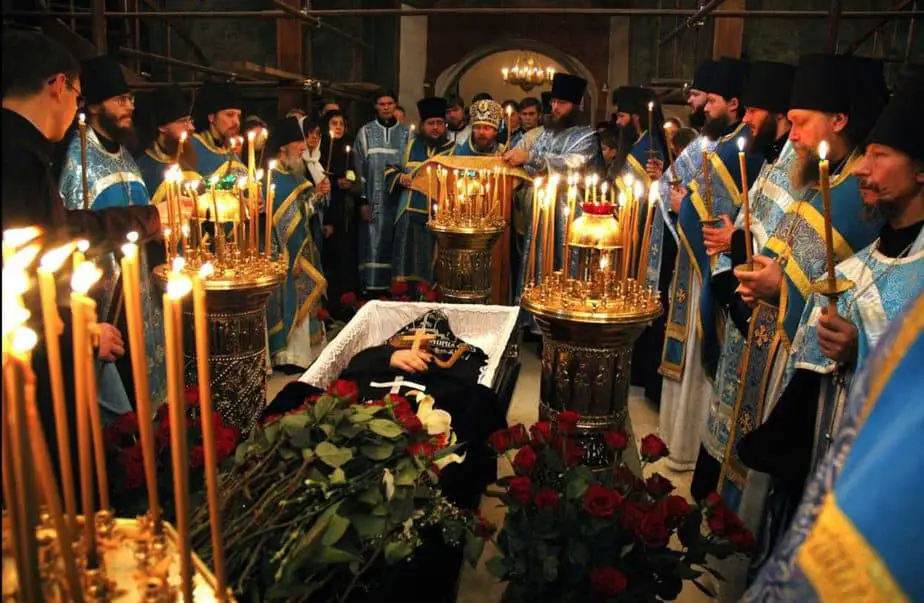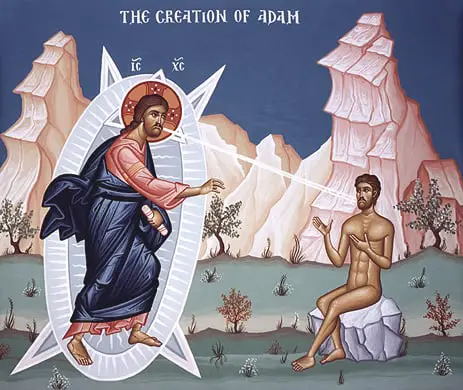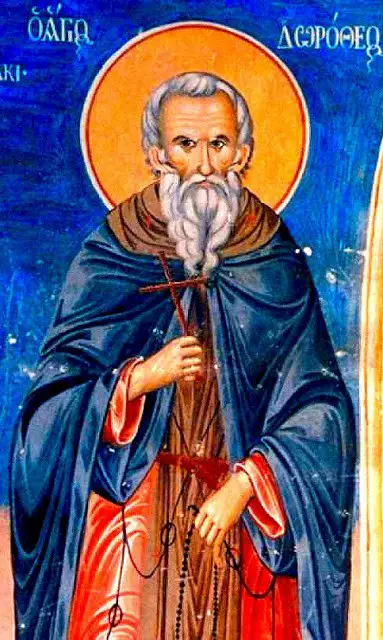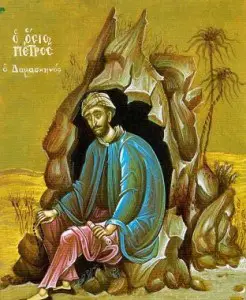Come, brethren, before the end, and let us all look upon our clay, upon the infirmity and meanness of our nature. Let us behold our end, and the organs of the vessel of our flesh. Let us see that man is dust, food for worms, and corruption; that our bones grow dry, and have no breath of life within them. Let us gaze on the tombs. Where is man’s glory? Where his outward beauty? Where is the eloquent tongue? Where the noble brow, and where the eye? All is dust and shadow. Therefore, Saviour, spare us all.
Why does man deceive himself and boast? Why does he trouble himself in vain? For he is earth, and soon to the earth he will return. Why does the dust not reflect that it is formed from clay, and cast out as rottenness and corruption? Yet though we men are clay, why do we cling so closely to the earth? For if we are Christ’s kindred, should we not run to him, leaving all this mortal and fleeting life, And seeking the life incorruptible, Which is Christ himself, the illumination of our souls?
Thou hast formed Adam with thine hand, O Saviour, and set him on the border between incorruption and mortality; thou hast made him share in life through grace, freeing him from corruption and translating him to the life that he enjoyed at first. Give rest, O Master, to thy servants thou hast taken from us; may they dwell with the righteous in the choir of thine elect; write their names in the book of life; raise them with the sound of the Archangel’s trump, and count them worthy of thy heavenly Kingdom.
Christ is risen, releasing from bondage Adam the first-formed man and destroying the power of hell. Be of good courage, all ye dead, for death is slain and hell despoiled; the crucified and risen Christ is King. He has given incorruption to our flesh; he raises us and grants us resurrection, and He counts worthy of his joy and glory all who, with a faith that wavers not, have trusted fervently in him.
— Four Stichera at the Praises, Matins, Saturday before Meatfare, Lenten Triodion, p. 139







